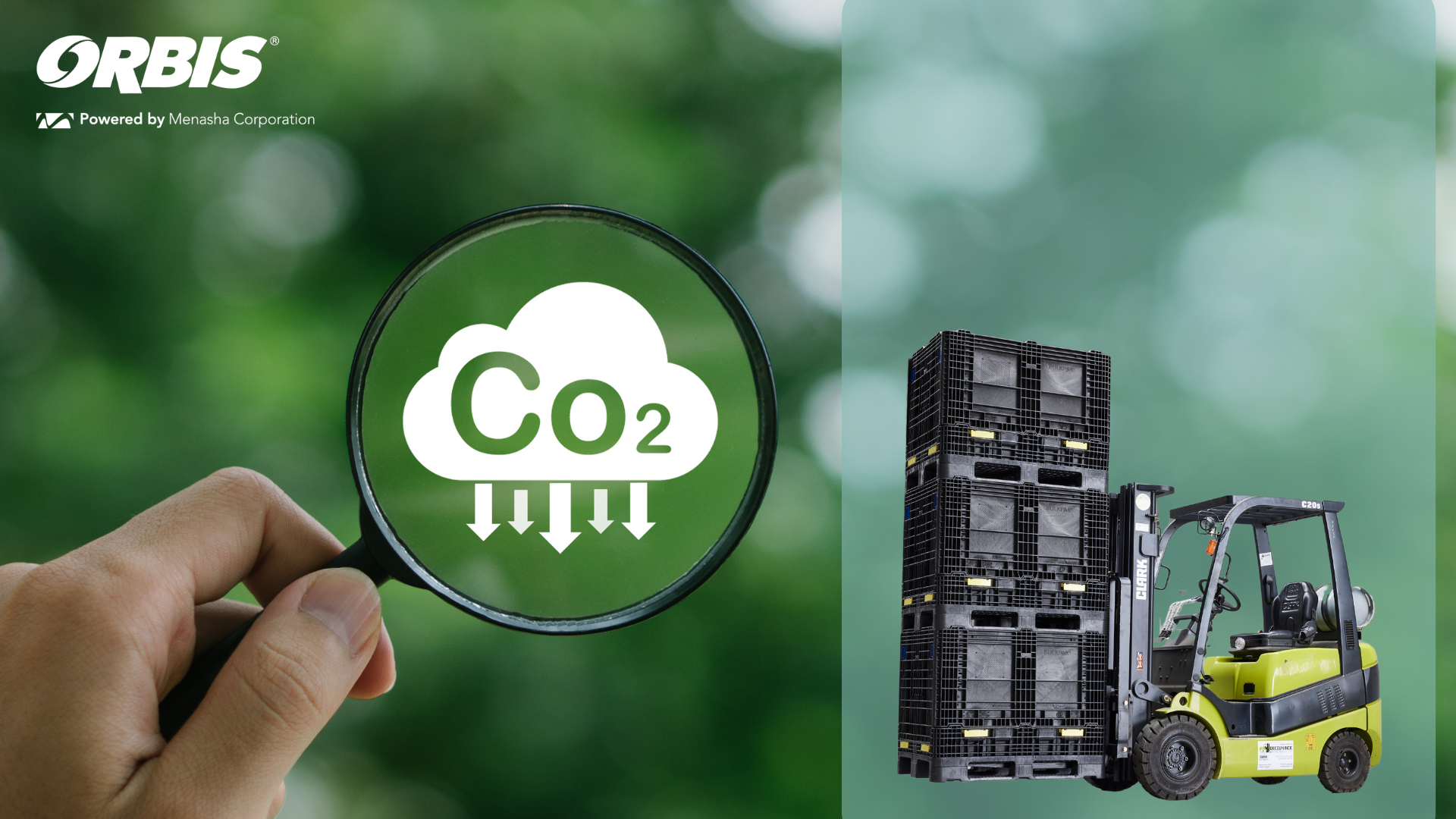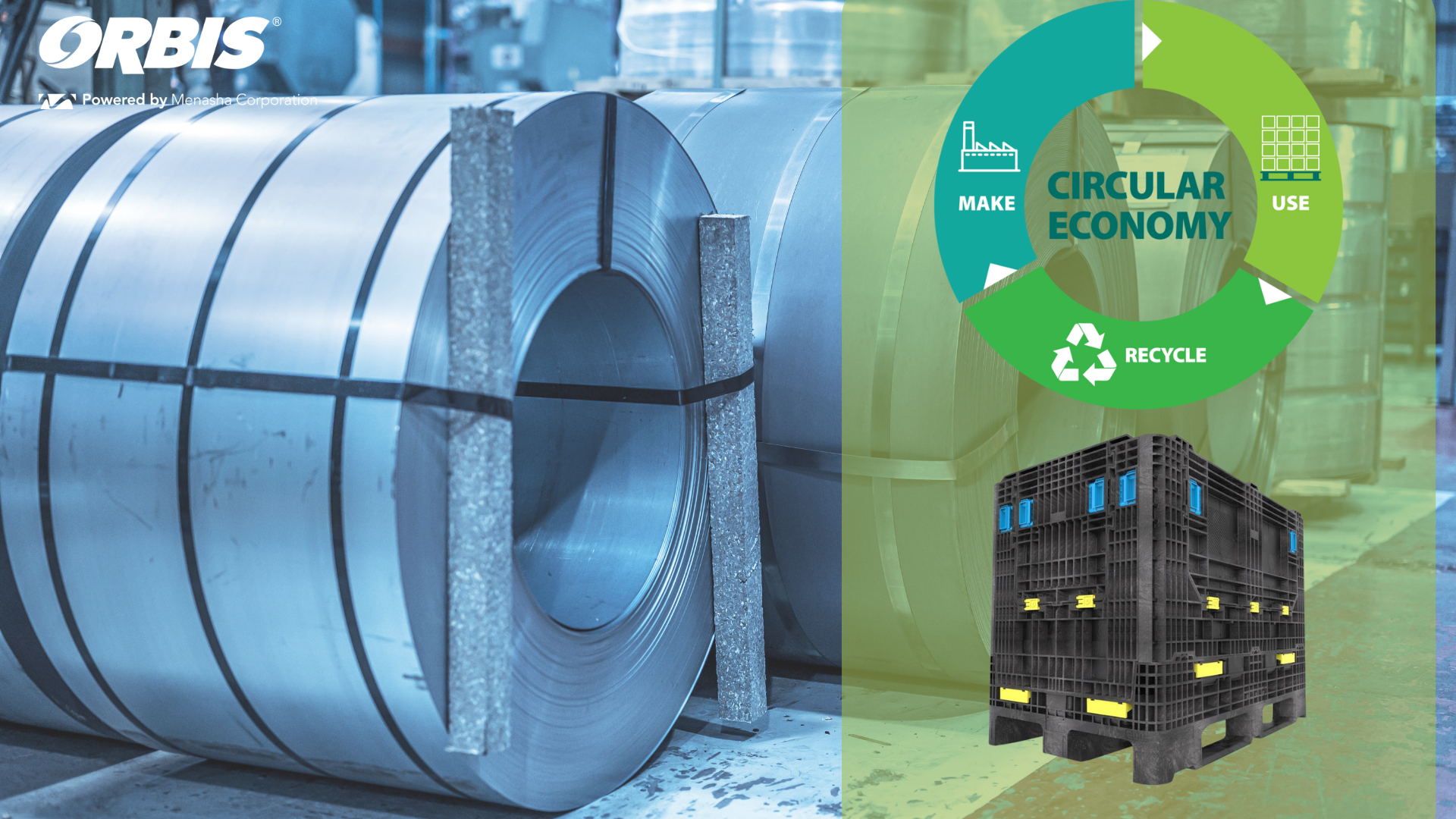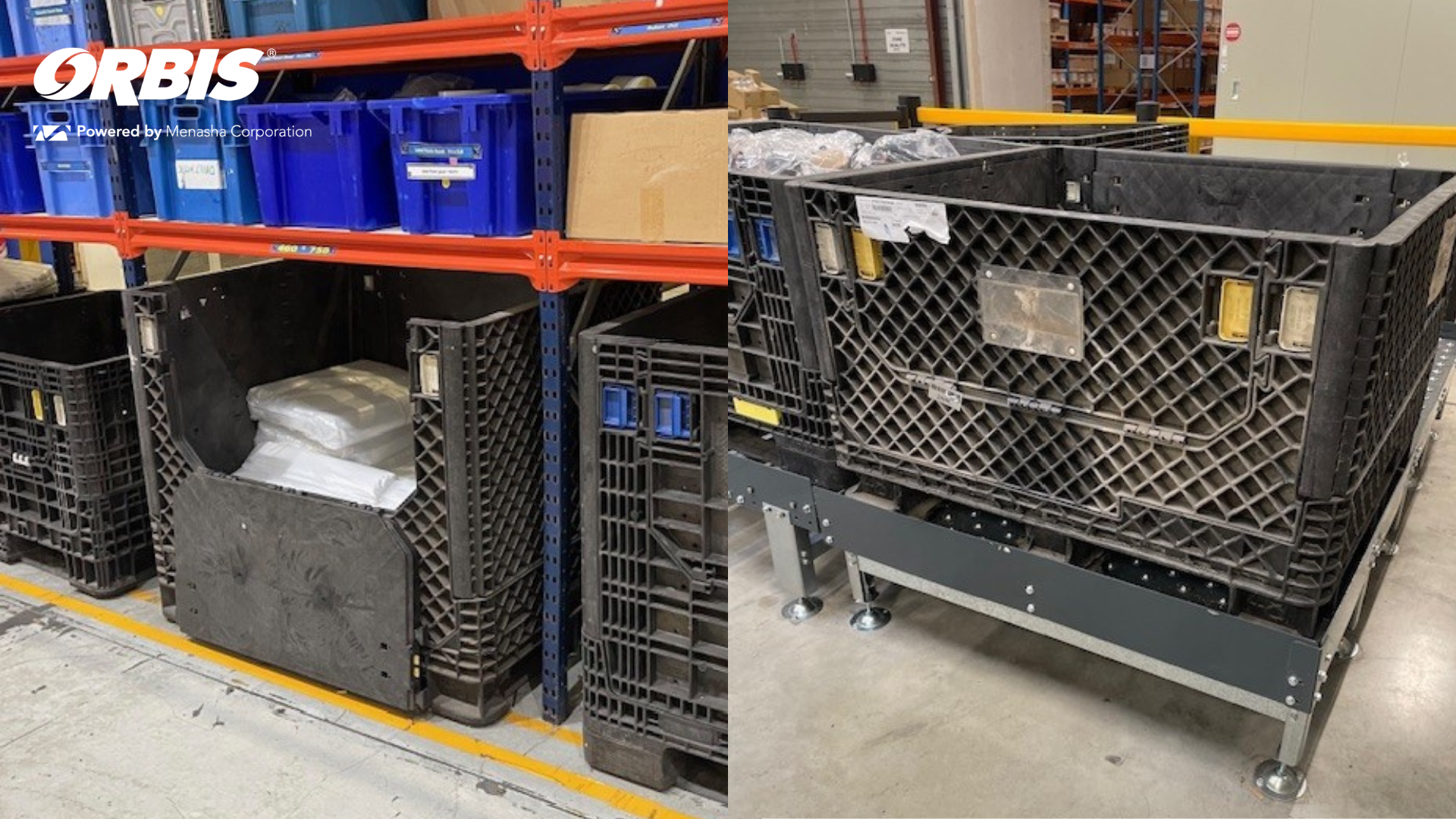
08 Aug Reducing CO2 emissions: reusable transport packaging as a key factor
WITH PLASTIC TO A MORE SUSTAINABLE SUPPLY CHAIN
Reducing CO2 emissions: reusable transport packaging as a key factor

Achieving a more sustainable supply chain with plastic
Reusable transport packaging contributes to the climate targets of Germany and the entire EU: According to the German government’s Climate Protection Act, CO2 emissions are to fall by 55% by 2030 compared to the reference year 1990; Europe is to become greenhouse gas neutral by 2050.[1] Companies are also increasingly seeing it as their duty to tackle the issue – according to the “Zukunft Industrie 2023” study by Staufen AG, around 62% of the DACH companies surveyed are aiming for CO2 neutrality in the next few years. To achieve this, they need to look for ways to reduce their CO2 emissions and put their supply chain to the test. The choice of suitable transport packaging plays an important role here. Plastic packaging can be a promising solution.
Advantages of reusable transport packaging:
1.Durability and reusability: Reusable plastic transport packaging is very robust, easy to repair and durable. They can withstand several rounds in the supply chain. This significantly reduces the need for new packaging – and therefore also the CO2 emissions associated with the production and transportation of new packaging. In addition, the recyclate from used reusable load carriers is used in the manufacture of new products, which also reduces CO2 emissions and conserves natural resources. For example, a high proportion of our large load carriers are made from recycled material.
Did you know?
By using up to 90 percent recycled material, ORBIS Europe can already save 60 to 70 kilograms of CO2 per large load carrier during production. By using recycled plastic material instead of new plastic, we have already saved 1.2 million tons of CO2. Recycling systems therefore promote the circular economy.

3.Reduce packaging waste: A high proportion of reusable plastic load carriers can be recycled – this reduces the amount of packaging waste. Disposable packaging made of wood or corrugated cardboard, on the other hand, generates larger quantities of waste. Their disposal and the production of new packaging lead to higher CO2 emissions.
4.Recycling systems for the circular economy: Many reusable packaging is part of return systems in which the packaging is collected and reused after use. This improves the use of resources and reduces energy consumption and emissions caused by the production of new packaging.
“The topic of sustainability is important for today’s supply chains. Reusable packaging solutions fit into the concept of the circular economy in terms of production, use and recycling. When companies switch to reusable plastic packaging, they significantly reduce their CO2 footprint.“
Jürgen Krahé, Senior Commercial Director EMEA, ORBIS Europe

The concept of the circular economy aims to keep raw materials and products in circulation for as long as possible and to minimize negative effects on the environment by reducing CO2 emissions and waste.
Are you planning to make your supply chain more sustainable and would like to find out more about our packaging solutions? Then get in touch with us.
A match with reusable? The Packaging Lifecycle Assessment Tool explains it all!
What are the individual benefits for a company when it switches to reusable transport packaging? And is the switch to reusable packaging suitable for every supply chain? Our Packaging Lifecycle Assessment Tool (PLCA) provides the answers.
The tool measures the impact of packaging in the individual phases of its life cycle – from resource extraction to the end of its life. The comparison of reusable and disposable packaging based on data-supported analyses helps to identify and reduce environmental impacts such as greenhouse gas emissions, water and energy consumption and waste.
“Companies need to understand the environmental impact of their decisions in order to reduce their environmental footprint and save costs in the long term.”
Thomas Estock, Director of Sustainability, ORBIS Corporation
Contact
+49 2233 619 2072




